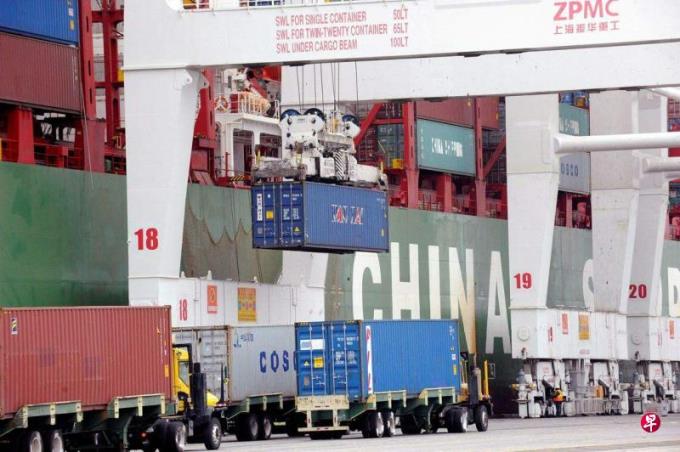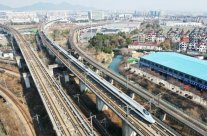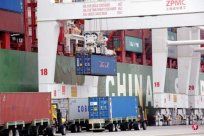
Both China and the United States are subsidizing, but the strength of subsidies is different. The essence is the same, and they are distorting international trade.Among the Chinese and American strategic competition, who has risen to endangers their own survival, who cares about the analysis of economics?The US government's rejection of China's cheap "new three" is politics, which is equivalent to the US government swears to China, and the United States no longer rely on Chinese products.
Lianhe Zaobao issued an article behind the US -Canadian tariffs on China on May 17. He pointed out in the article: "The US government imposed tariffs on China in this round, which is directly because China’ s excessive subsidies and excessive subsidies in China -US trade andThe dumping policy is more fundamental, the economic competition in the United States and China has intensified, and the two countries have comprehensively confronting the state of warming. "
I think Mr. Wang's judgment is basically wrong.First, the Bayeng government imposed tariffs on China at this moment. It is the product of the American political internal fighting and the banner of Trump's aggressive trade war.Second, the Bayeng government chose strategic industries such as the green industry as the target of strikes, reflecting the commanding heights of the United States and China for the 21st century.
Trump watched the trade war to win voters support
Trump's administration in 2016 marks that the banner of the United States' high -tech free trade after World War II has fallen, and the trade war has become a political heritage of Trump.After Biden took office, he continued to maintain the US tariffs on China, and there were no free trade measures.This is enough to indicate that the United States has bid farewell to free trade.Globalization is torn due to geopolitics, political factors are embedded in globalization, and large powers no longer seek economic efficiency -centered economic mutual dependence.In the United States, the dissatisfaction caused by globalization has risen, laying the foundation for Trump's use of populism.
For the current Biden, the confrontation with Trump is already underwind again.Police investigations released by Columbia Broadcasting Corporation in March found that 65%of Americans believe that the economic situation under Trump leaders is good, and only 38%of Americans have positively evaluated the economy under Biden's leadership.The survey also showed that nearly six voters believed that the US economy under the leadership of Biden was bad.However, according to data from the International Monetary Fund, from 2019 to 2024, the per capita GDP (GDP) of the United States increased by 8.3%, far better than other large economies.However, any polls conducted in the United States show that most Americans think that the economy under Trump is far better than worship.
This phenomenon has puzzled many economists.In fact, the US economy is currently hot, and the U.S. Federal Reserve's high interest rates have not caused economic recession for inflation.On May 17, the Dow Jones Industrial and Commercial Index exceeded the 40,000 -point mark for the first time.The consumer price index (CPI) in April rose 3.4%over a year ago, the core CPI rose 3.6%year -on -year, the lowest increase since April 2021.The unemployment rate in April was 3.9%.Such economic performance has something to do with the stimulus policy of Biden Economics, but the American people do not recognize it.
Biden had to find a way to defeat Trump.Trump nakedly manipulated populism, claiming that he was a candidate for the white worker class, but the guiding ideology of Biden Economics was also for the working class.A loud slogan for Trump's fought for workers' votes was to fight a trade war, proposing a 10%tax on all imported goods from all countries, and levying up to 60%of tariffs on all products from China.
A research results in the United States in 2024 show that Trump's trade war is politically successful and economic failure.Researchers have speculated that over the past few decades, voters who have been impacted by imported products from China may regard tariffs as "symbols of political unity" rather than the actual impact on employment.The study explained the "impact of China", and the quantitative China joined the World Trade Organization to lead to a decrease in employment in the US manufacturing industry.They study how these unemployment affects the political trends of the central area of the United States, including the increase in political dualization and the increase in the support rate of Republican Party.Based on the fact that "China's impact" leads to an increase in unemployment rates in the United States, both parties in the United States have turned to protectism.
In such an environment, Biden was threatened by protectionism, and was held by the slogan of the Trump trade war. It imposed tariffs on China and became a must -have project for Biden.From this point of view, the Biden government's tariffs on Chinese products are the need for American political struggles. It cannot be simply said that it is a trade war caused by China's subsidies or dumping.In the first quarter of this year, 2,200 Chinese "Polestar" brand electric vehicles were exported to the United States.What can 2200 electric vehicles affect the United States?
Bayeng government precisely crack down on China's strategic industry
Since this year, the "China Intellectual" version 2.0 is full of mainstream Western media."China Intellectual" version 2.0 is no longer a product like traditional shoes and clothing, but electric vehicles, solar cells and lithium batteries, and even traditional chips.In 2023, the total export of pure electric vehicles in China increased by 70%over the previous year.
China's lithium -ion battery exports have jumped from $ 13 billion in 2019 to $ 65 billion last year.The capacity of China's solar panels expanded by 10 times from 2008 to 2012, resulting in a decrease of about 75%of the world's solar panel prices, which also caused many factories in the United States and Europe to close.
China is proud of the "new three" to the world, never considering the feelings of other countries, let alone consider conflict with the industrial policy promoted by Biden.The "New Three" directly label the government's investment in US factories and infrastructure to invest 2 trillion US dollars of clean energy transformation.
Eswal Plazad, an economist at Cornell University, said: "This is a very obvious and imminent danger, because the Bayeng government's industrial policy is mainly concerned about traditional low -skills, low -wage manufacturing industryInstead, it is a new high -tech manufacturing industry.This is why the Biden government uses China's "new three" as tariffs.This round of tariffs is preventive. The purpose is to prevent products that are excessive in China in the future to fill the US market.
This article explains that the Biden government has tariff against China by refuting Mr. Wang Qingmin's argument.Wang Wen only stayed in the "China Intellectual" version 1.0, using the old framework of subsidies and dumping behind the overcapacity, analyzing new problems today, and reducing the height of the US foreign strategy and high -tech industry competition.
Both China and the United States are engaged in subsidies, but the strength of subsidies is different. The essence is the same, and they are distorting international trade.Among the Chinese and American strategic competition, who has risen to endangers their own survival, who cares about the analysis of economics?The US government's rejection of China's cheap "new three" is politics, which is equivalent to the US government swears to China, and the United States no longer rely on Chinese products.As the director of the White House National Economic Commission, Lyle Brener, said that the United States could not accept another "China impact."The crown disease allows the United States to taste the taste of relying on Chinese masks and respirators.The changes in Sino -US trade are classic cases of geopolitics that lead to fragmentation of trade.
The author is a commentator in Shanghai, China




